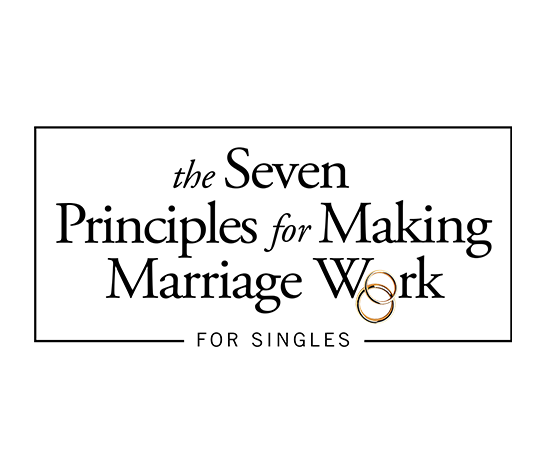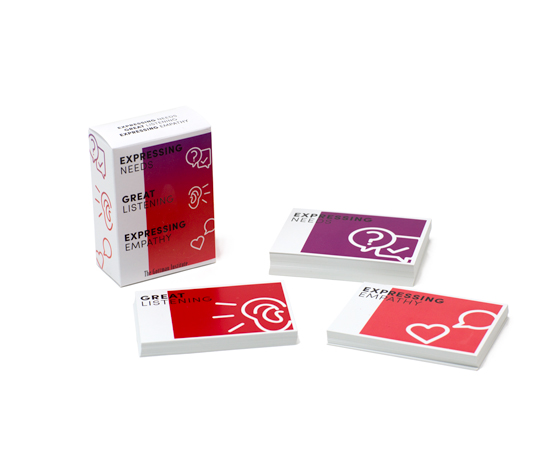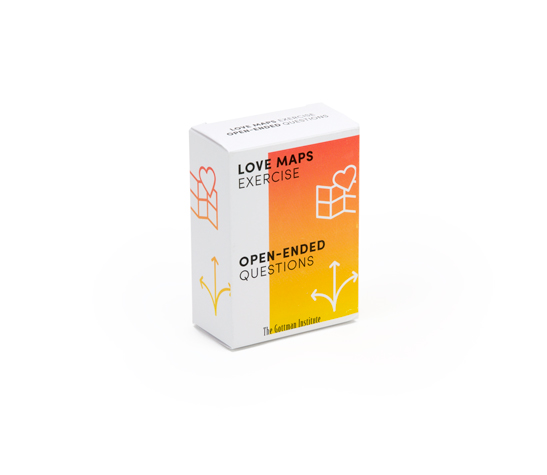For singles, this fast-paced, modern world of seemingly endless swiping, matching, and messaging brings about an epidemic of detached, disengaged, and guarded dating.
We need for connection. We’re not meant to be solitary. But so many singles aren’t showing up for the people they date. The social media culture of today tells singles that an ordinary life isn’t enough, so they’re always looking for the next best thing.
They chase unrealistic #RelationshipGoals, and the sheer amount of options results in indecisiveness and constant comparisons between potential partners. Psychologist Barry Schwartz calls this phenomenon the “paradox of choice.”
They’re struggling to be seen and, most importantly, heard. Honest conversations are avoided, and as Brené Brown notes in Daring Greatly, vulnerability is seen as a weakness because people confuse “feeling” with “failing” and “emotions” with “liabilities.”
So what can you do to have a more authentic dating experience? After all, the goal is not to just meet someone. You deserve a meaningful relationship.
Here’s how to stop detached dating and create real connection.
Build intimacy through Love Maps
It’s said that the word intimacy means “into me see,” suggesting that intimacy is allowing yourself to be seen. But only by knowing and accepting yourself fully can you then allow someone to “see“ you and be able to “see” them in return.
According to the Gottman Method, friendship is the foundation of every good relationship. It’s the basis of intimacy, passion, and great sex. And happy couples know each other fully. The Gottman term for knowing your partner’s inner world—their hopes, dreams, likes and dislikes, fears, stressors, best and worst memories—is Love Maps.
A Love Map is like a map to someone’s heart. So go beyond the standard, surface-level questions when you’re dating. It shouldn’t feel like an interview. Instead, show genuine interest by asking Love Map questions. For examples of Love Map questions, download the free Gottman Card Decks app.
There’s a song by Bryan Adams called “Inside Out” that gets at the idea of Love Maps.
The biggest lie you ever told. Your deepest fear about getting old. The longest night you ever spent. The angriest letter you never sent. The boy you swore you’d never leave. The one you kissed on New Years Eve. The sweetest dream you had last night. Your darkest hour, your hardest fight. I wanna know you like I know myself. I wanna dig down deep, I wanna lose some sleep. I wanna scream and shout, I wanna know you inside out. I wanna take my time, I wanna know your mind. You know there ain’t no doubt, I wanna know you inside out.
You don’t have to sing Bryan Adams to your date (some may even appreciate you not doing that), but the idea is to ask questions and be interested in the person you are going on dates with. Be curious. Deep conversations create a sense of closeness and intimacy.
Allow yourself to be vulnerable
I love the definition of vulnerability that Brené Brown gives us: “facing uncertainty, exposure, and emotional risks, and knowing that you are enough.” This can be especially difficult if you’ve been hurt before. And you can’t be vulnerable if the person you’re dating doesn’t feel safe or trustworthy.
Trust is built slowly over time, so it’s important to make an effort to get to know someone, something that a lot of singles don’t do these days because they date several people at the same time and move from one date to another.
Dr. John Gottman observed thousands of couples for more than four decades in the Love Lab. What he found was that most couples fight about a failure to emotionally connect, without even realizing it. So it’s important that you connect with someone emotionally from the very start. He uses a simple concept to explain how to keep the emotional connection intact: the Emotional Bank Account.
When you make a bid (an attempt to connect) for connection and the person you’re dating turns toward you with interest, affection, and understanding, a deposit is made into your Emotional Bank Account. And positive deposits build trust.
If someone chooses to be there for you rather than choosing to think only about their own wants and needs, that’s a good sign. And just like in your real bank account, a zero or negative balance is not good.
Dr. John Gottman found that couples who remained married turned toward their partner’s bids for connection 86% of the time in the Love Lab, while those who divorced only turned toward 33% of the time. So if someone is constantly ignoring your bids to connect while dating, it might be time to move on.
Express fondness and admiration
Have you ever looked at the person you’re dating and thought to yourself how wonderful they are? Has your date said or done something so nice but you chose to keep it to yourself, maybe only saying a simple “thank you” and then gushing to your friends about how sweet they were instead? Nice thoughts about others are not supposed to just stay in our heads. They are supposed to be said out loud.
Expressing gratitude, fondness, and admiration increases the respect, affection, and friendship in a relationship. It’s the best antidote to contempt, which is the top predictor of divorce, according to Gottman research.
In happy relationships, there’s a belief that your partner is likable and you respect them despite their flaws. And while no one is perfect, you can find something perfect in the person you’re dating. Be brave and tell them. In the end, that’s what makes a relationship great.
In the movie Good Will Hunting, Sean (Robin Williams) shares about his late wife to Will (Matt Damon).
But Will, she’s been dead for two years, and that’s the shit I remember. Wonderful stuff, you know? Little things like that. Those are the things I miss the most. The little idiosyncrasies that only I know about. That’s what made her my wife. Oh she had the goods on me too, she knew all my little peccadilloes. People call these things imperfections, but they’re not. Ah, that’s the good stuff.
So next time you think about your date’s “little peccadilloes” that make you smile, don’t just go and tell your friends, or keep them to yourself. Share them with the person who needs to hear it the most—the person you’re dating.
Embrace conflict
Detached dating looks a lot like dating in the dark. Playing games, guessing what the other person is feeling and thinking, assuming you know things when you don’t. In order to avoid getting hurt, some people don’t allow themselves to get close. And if they do get close, then they avoid conflict in order not to ruin things.
“If I tell them, then I will hurt their feelings. I can’t do that.”
“They will reject me.”
“It will be uncomfortable.”
“I will lose them.”
The list of reasons to avoid difficult conversations goes on and on.
Gottman research has shown that 69% of relationship conflict is about perpetual problems. These problems cannot be solved as they are rooted in fundamental differences in upbringing, lifestyles, values, and personalities. They are not a matter of “right” and “wrong,” but rather “just different than what I am used to.”
So don’t try to change the person you are dating. But it’s important to understand where they’re coming from, and vice versa. Create a safe space to dialogue about the differences between the two of you early on. If you don’t, it can lead to gridlocked conflict which will cause emotional disengagement.
There’s nothing safe about avoiding conflict. How you manage conflict is more important than what you fight about.
Dating takes courage, vulnerability, and willingness to communicate and listen. It may be difficult but it’s worth it. When the person you’re dating is not available, stops paying attention, stops investing, and stops making an effort, that’s when feelings get hurt.
In early dating, you may think you don’t have the “right” to be hurt like that. So people take this hurt, cover it up, and take it to their next date, and then the next, continuing the cycle of detached dating.
Instead, let’s own our truths and start connecting with people in a more meaningful way.









